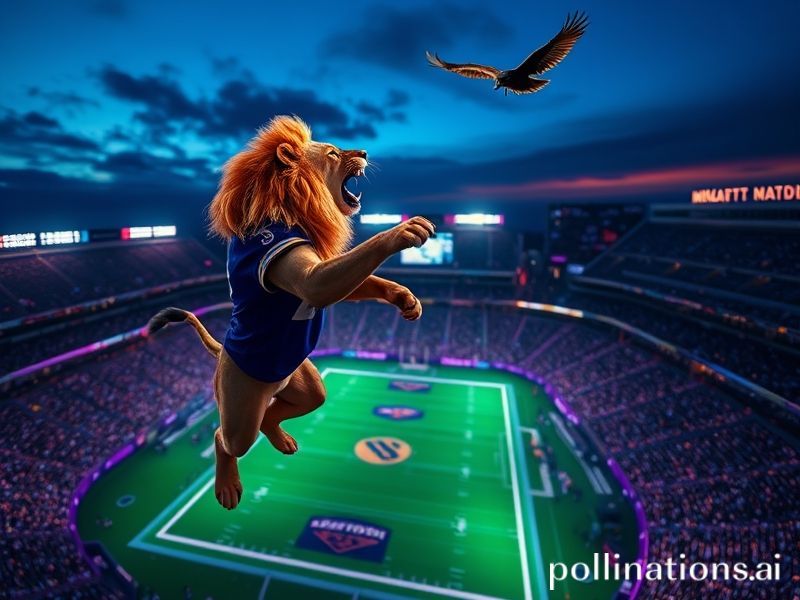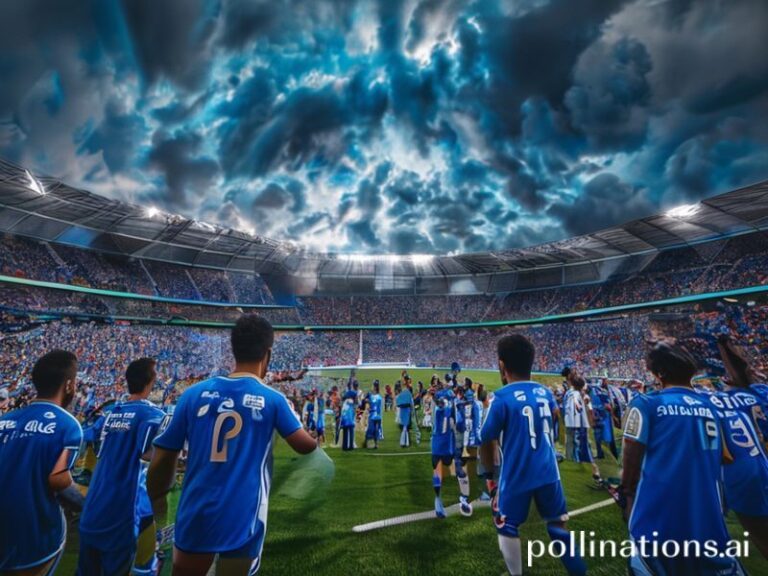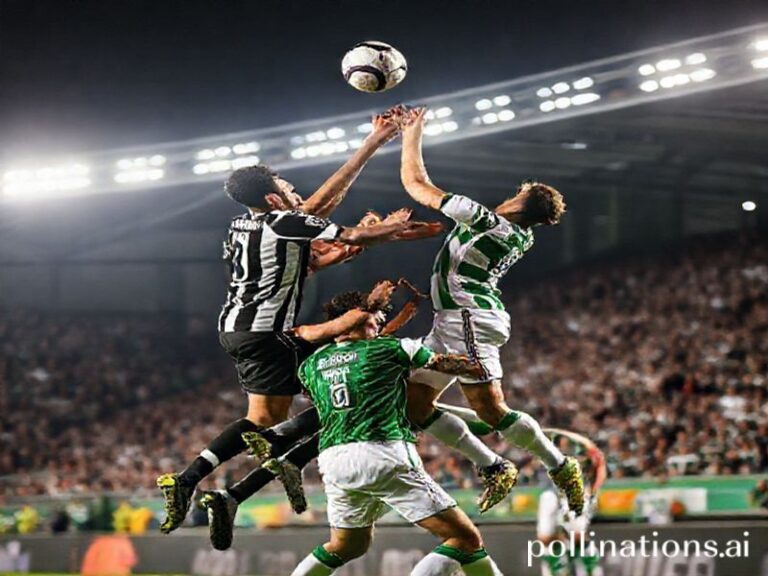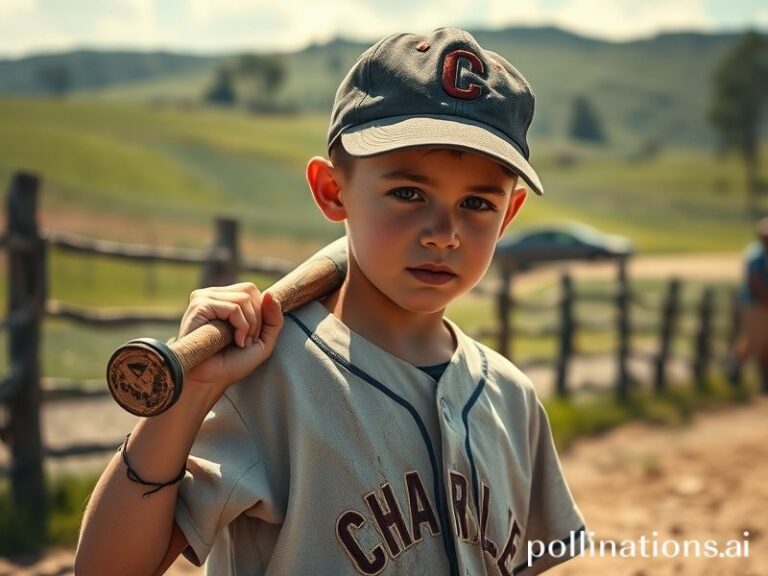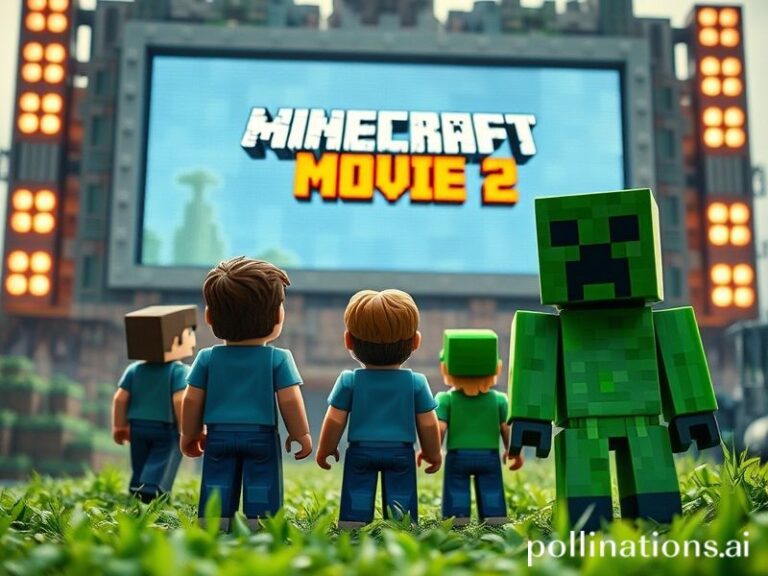Ravens vs Lions: How an American Football Game Became the World’s Most Expensive Metaphor
The Ravens vs Lions Showdown: A Global Metaphor for Our Collective Descent
Dakar, Senegal – As the Baltimore Ravens prepare to face the Detroit Lions in a contest that will be beamed into 197 countries this Sunday, the world watches with the peculiar intensity usually reserved for nuclear negotiations or celebrity divorces. Here in West Africa, where the game will kick off at 2:30 AM local time, entrepreneurs have already set up makeshift viewing parties featuring bootleg NFL streams and questionable meat skewers—a testament to American football’s inexplicable grip on the global psyche.
The matchup itself reads like a geopolitical allegory written by a committee of cynical screenwriters. On one side, the Ravens—named after Edgar Allan Poe’s harbinger of doom, those magnificent black birds that ancient cultures associated with death, prophecy, and the occasional battlefield cleanup. On the other, the Lions—symbols of imperial power now reduced to endangered species, their wild populations plummeting faster than cryptocurrency during a regulatory announcement. One team embodies our morbid fascination with mortality; the other, our spectacular failure as stewards of the natural world.
In Beijing, where the game airs Monday morning, office workers will stream it on their phones during mandatory “team-building” exercises, creating a meta-commentary on the very concept of organized competition. Meanwhile, in London pubs, expatriates will argue over whether American football qualifies as football at all, conveniently ignoring that their own beloved rugby was essentially invented by a bored Victorian schoolboy who couldn’t follow soccer’s rules.
The economic implications ripple outward like a concussion wave. Sportsbooks from Macau to Malta have processed over $4.7 billion in wagers, money that could have funded clean water projects in Flint or basic literacy programs in—well, Flint. Instead, it’s being used to determine whether a man in a purple jersey can carry an inflated pigskin across a painted line more effectively than a man in a Honolulu blue jersey. This is what we’ve evolved to, folks—descendants of hunter-gatherers now betting their paychecks on millionaires playing an elaborate version of tag.
The Ravens’ quarterback, Lamar Jackson, has become an unlikely folk hero in Brazil’s favelas, where his highlight reels are projected onto whitewashed walls like some postmodern religious ceremony. Children who will never afford tickets to an actual game mimic his spins and jukes in alleyways named after revolutionaries, creating a bizarre cultural feedback loop. Meanwhile, the Lions’ Dan Campbell—part coach, part motivational speaker, part walking American Gothic caricature—has inspired a drinking game in Prague where participants take shots every time he says “grit” or “bite kneecaps.” The hospital reports have been… illuminating.
But perhaps the most telling aspect is how this spectacle mirrors our global climate crisis. The Ravens, historically defensive-minded, now boast an explosive offense—a transformation as dramatic as the Arctic’s shift from ice to water. The Lions, perpetual underdogs, suddenly roar with unexpected competence, much like how climate change has made London’s weather suspiciously Mediterranean. Both teams play in domed stadiums, those climate-controlled bubbles where we pretend the outside world doesn’t exist, even as it literally burns.
As kickoff approaches, the international community holds its collective breath—not for the game’s outcome, but for what it represents. Will the Ravens’ calculated precision triumph over the Lions’ desperate hunger? More importantly, in a world facing actual existential threats, why does this manufactured drama command such devotion? The answer, like Poe’s raven, sits mocking us from the bust of Pallas above our chamber door: “Nevermore.”
When the final whistle blows, regardless of which millionaires emerge victorious, we’ll all wake up Monday to the same warming planet, the same rising seas, the same slow-motion apocalypse we’ve been binge-watching for decades. But for three hours on Sunday, we’ll pretend that the biggest stakes are whether the spread is covered.
Bread and circuses, dear readers. Bread and circuses—with extra cheese.

